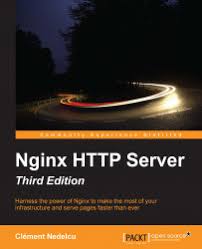Small and medium enterprises (SMEs) are increasingly reliant on content management systems (CMS) such as Joomla 5 and Magento for digital presence and eCommerce operations. Ensuring these platforms are secure, performant, and scalable from development to production requires a well-defined DevOps framework.
White Paper
Agile DevOps for Joomla 5 and Magento: Local SSL, Nginx Configuration, and Performance Testing on Kubuntu
Executive Summary
Small and medium enterprises (SMEs) are increasingly reliant on content management systems (CMS) such as Joomla 5 and Magento for digital presence and eCommerce operations. Ensuring these platforms are secure, performant, and scalable from development to production requires a well-defined DevOps framework.
This white paper explores:
- Configuring SSL and Nginx locally on a Kubuntu laptop for Joomla and Magento development.
- Implementing performance benchmarking using ApacheBench, wrk, and Nginx monitoring.
- Applying DevOps best practices within Agile workflows to streamline deployment pipelines.
- Demonstrating how IAS-Research.com and KeenComputer.com can support SMEs in achieving digital transformation.
By integrating security, performance testing, and DevOps principles, organizations can improve software quality, reduce downtime, and accelerate time-to-market.
1. Introduction
Joomla 5 and Magento are widely used for building content-rich websites and eCommerce platforms. These applications demand high availability, fast performance, and robust security. Nginx, known for its lightweight and scalable architecture, is an ideal web server for hosting such platforms.
However, traditional local development often neglects SSL testing and performance benchmarking, leading to misconfigurations and slowdowns in production. Furthermore, without DevOps practices, deployments become error-prone, manual, and slow.
This paper proposes a Kubuntu-based local development workflow that integrates SSL configuration, Nginx tuning, and Agile DevOps best practices to prepare Joomla and Magento for enterprise-grade deployments.
2. Local SSL Configuration for Joomla and Magento
2.1 Generating a Self-Signed Certificate
Using OpenSSL, developers can simulate HTTPS locally:
sudo mkdir -p /etc/nginx/ssl
sudo openssl req -x509 -nodes -days 365 -newkey rsa:2048 \
-keyout /etc/nginx/ssl/local.dev.key \
-out /etc/nginx/ssl/local.dev.crt
- Common Name (CN): local.joomla.test or local.magento.test
- Certificates are stored in /etc/nginx/ssl
2.2 Configuring Nginx Server Block
Example for Joomla 5:
server {
listen 80;
server_name local.joomla.test;
return 301 https://$host$request_uri;
}
server {
listen 443 ssl;
server_name local.joomla.test;
root /var/www/joomla;
index index.php index.html;
ssl_certificate /etc/nginx/ssl/local.dev.crt;
ssl_certificate_key /etc/nginx/ssl/local.dev.key;
location / {
try_files $uri $uri/ /index.php?$args;
}
location ~ \.php$ {
include snippets/fastcgi-php.conf;
fastcgi_pass unix:/run/php/php8.2-fpm.sock;
fastcgi_param SCRIPT_FILENAME $document_root$fastcgi_script_name;
include fastcgi_params;
}
}
Magento requires additional rewrites for static assets and index.php routing, but the SSL setup remains the same.
2.3 Validation
- Syntax check: sudo nginx -t
- Reload server: sudo systemctl reload nginx
- Test with: curl -vk https://local.joomla.test
3. SSL Testing and Certificate Validation
- Basic check: openssl s_client -connect local.joomla.test:443
- Browser validation: Accept warning for self-signed certs in dev
- Advanced setup: Create a local Certificate Authority (CA) to simulate trusted certificates
4. Nginx Performance and Configuration Testing
4.1 Worker Process Tuning
worker_processes auto;
worker_connections 10240;
- Scales based on CPU cores
- Supports high concurrency
4.2 FastCGI Optimization
fastcgi_keep_conn on;
fastcgi_buffers 16 16k;
fastcgi_buffer_size 32k;
- Reduces PHP-FPM overhead
- Handles larger Magento/Joomla responses efficiently
4.3 Nginx Metrics
Enable stub_status:
location /nginx_status {
stub_status;
allow 127.0.0.1;
deny all;
}
Monitors:
- Active connections
- Requests handled
- Reading/writing/waiting states
5. Performance Benchmarking
5.1 ApacheBench
ab -n 1000 -c 20 https://local.joomla.test/
- Measures requests/sec, latency, error rates
5.2 wrk
wrk -t4 -c100 -d60s https://local.magento.test/
- Simulates concurrent users
- Provides percentile latency distribution
5.3 Metrics to Track
- Response time (p50, p90, p99)
- Throughput (req/sec)
- Error codes (4xx/5xx)
- Resource usage (CPU, memory, I/O)
6. DevOps Best Practices for Agile Joomla and Magento Development
6.1 Version Control and Collaboration
- Git-based workflows with pull requests & code reviews
- Branching strategies (Gitflow or trunk-based)
6.2 Continuous Integration / Continuous Delivery (CI/CD)
- Automated unit tests (PHPUnit) and integration tests
- CI pipelines check:
- PHP/JS linting
- Nginx config validation
- SSL certificate expiry checks
- Automated deployment with Ansible, Jenkins, or GitHub Actions
6.3 Infrastructure as Code (IaC)
- Docker Compose for local Joomla/Magento + Nginx stacks
- Terraform for cloud infrastructure provisioning
- Ansible playbooks for reproducible server configs
6.4 Monitoring and Observability
- Prometheus + Grafana for performance dashboards
- ELK stack for log aggregation
- Joomla admin tools and Magento profiler for application-specific insights
6.5 Performance and Load Testing in Sprints
- Integrate ApacheBench/wrk into Agile sprint cycles
- Define performance budgets (e.g., <2s page load at 50 concurrent users)
6.6 DevSecOps Integration
- Automate SSL certificate renewals
- Security scanning: Composer audit, OWASP ZAP, Burp Suite
- Enforce RBAC and secure coding practices
6.7 Agile Collaboration
- Daily stand-ups review metrics & deployment outcomes
- Sprint retrospectives analyze performance bottlenecks
- Continuous feedback loop ensures faster delivery cycles
7. Strategic Business Value
- For Developers: Reduced deployment errors, faster feedback
- For SMEs: Faster time-to-market, improved customer experience
- For Enterprises: Scalable, secure, and compliant systems
IAS-Research.com supports enterprises with DevSecOps automation, compliance monitoring, and benchmarking frameworks.
KeenComputer.com delivers practical Joomla/Magento development pipelines, helping SMEs deploy secure, optimized eCommerce platforms.
Together, they empower organizations to achieve resilient, high-performing digital platforms.
8. Conclusion
Building Joomla 5 and Magento applications with SSL-enabled Nginx, performance benchmarking, and DevOps best practices ensures development environments mirror production in both security and scalability. By aligning Agile workflows with DevOps, SMEs and enterprises can achieve continuous delivery of secure, optimized, and high-performing applications.
IAS-Research.com and KeenComputer.com provide the technical depth, business insight, and implementation expertise to guide organizations toward digital transformation success.
References
- GeekRewind – How to Install Joomla with Nginx Support on Ubuntu 24.04
- Gustaw Daniel – How to Configure SSL in Local Development
- SSLTrust – Nginx SSL Install Guide
- IONOS – Install Joomla on an Nginx Server
- The Sec Master – Set Up a Testing Site in Nginx
- Shape.Host – How to Install Joomla with Nginx on Rocky Linux
- RoseHosting – How to Install Joomla with Nginx on Ubuntu 18.04
- Amikelive – How to Configure Nginx on Ubuntu 20.04
